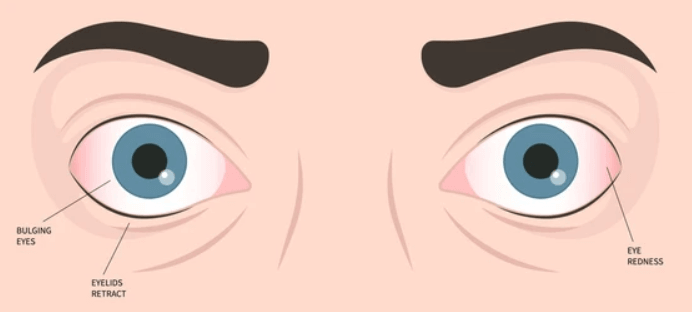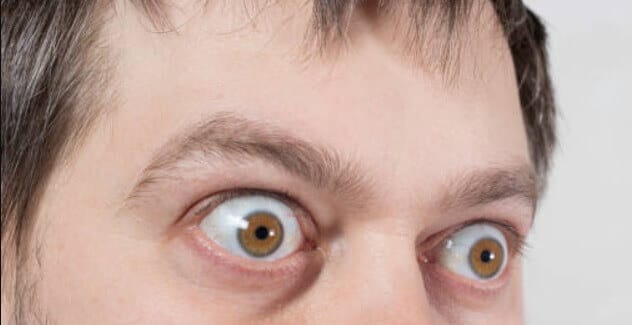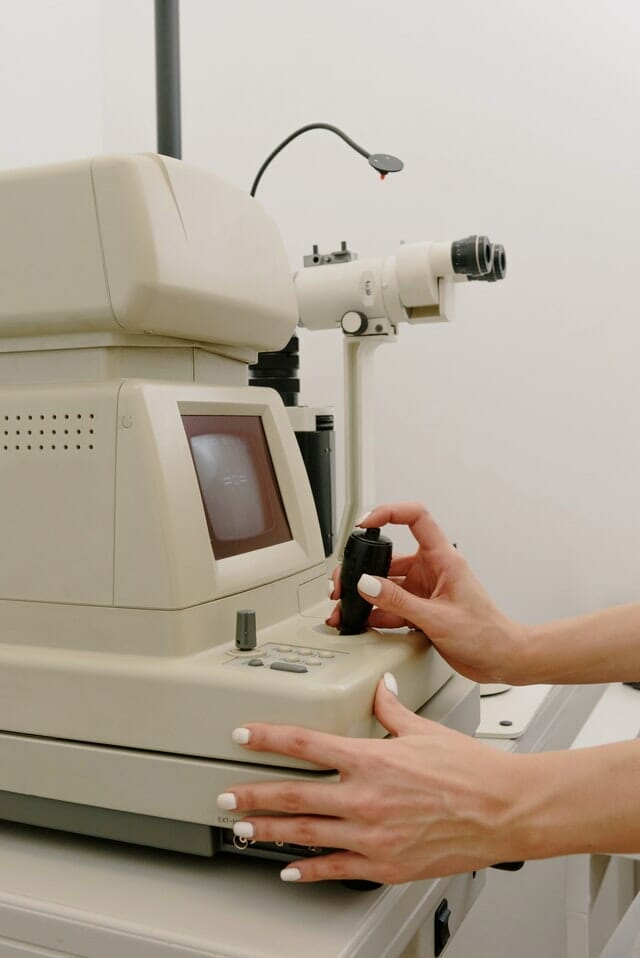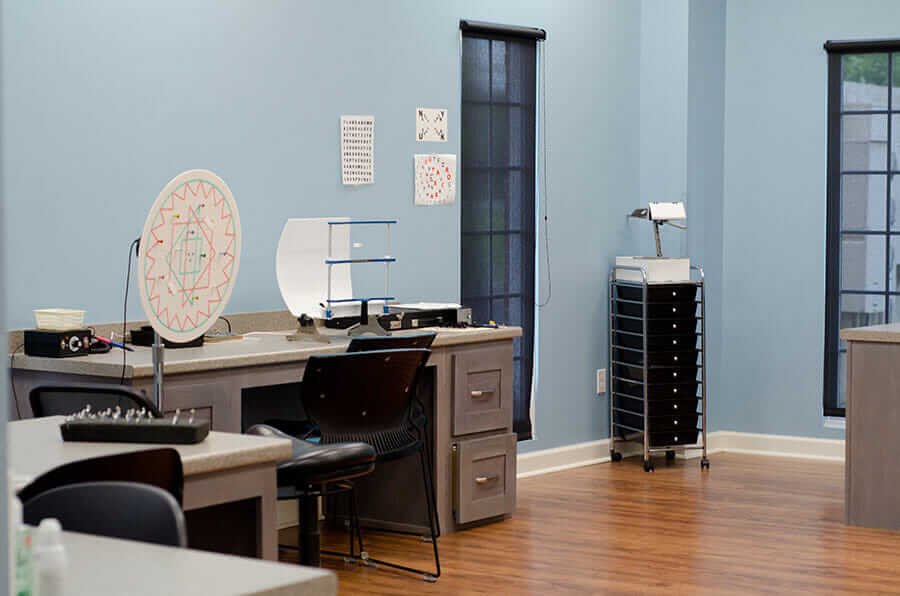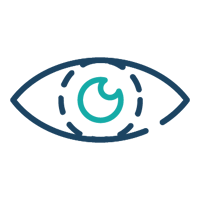Understanding the Signs and Symptoms of Thyroid Eye Disease
Eyelid Retraction and Thyroid Eye Disease
Eyelid retraction occurs in about 80% of people with TED. This condition causes the eyelids to be pulled back and results in a wide-eyed, startled appearance. Normally, the upper eyelid should come below the top portion of the cornea, and the white of the eye (sclera) should not be visible above the cornea. If you notice that someone's eyelids are pulled back, and you can see a significant amount of the sclera above the cornea, this may be a sign of eyelid retraction.
To test for eyelid retraction, we will ask patients to follow their finger or a pen and look up and down slowly. This helps them detect asymmetry between the two eyes, which is often present in TED. Lid lag, where one eyelid is higher than the other in down gaze, is found in about 50% of all people with eyelid retraction. Dynamic asymmetry is also checked through the Von Graefe's sign, where one eyelid falls slower than the other.
Proptosis or Bulging Eyes and Thyroid Eye Disease
Proptosis, also known as exophthalmos, is the medical term for bulging of the eyes. In people with TED, the eye muscles that surround the eyes become inflamed and swollen due to the autoimmune response that is also affecting the thyroid gland. The swollen muscles can become fibrotic, causing the eyeballs to push outward, and in some cases, the white of the eyes may become visible above the cornea. Proptosis is the most common symptom of TED and is found in about 60% of all cases.
Double Vision and Thyroid Eye Disease
Double vision, or diplopia, is a common symptom of TED. This happens because the inflamed and fibrotic eye muscles are unable to move the eyes properly, causing double vision. Typically, the inferior rectus muscles are first affected, resulting in vertical diplopia. This can be followed by the medial and superior rectus muscles and, in some cases, the lateral rectus muscles. Diplopia can be especially severe in people with TED and can lead to functional impairment.
Dry Eye and Graves Disease, Thyroid Eye Disease, and Hashimoto Disease
Graves or thyroid eye disease can also cause dry eyes or a sensation of foreign body or sand in the eyes. One reason that can cause this is due to the eyelids not closing properly which does not allow for proper blinking which enables the tears to dry out quicker.
Antibodies from autoimmune conditions and dry eye
Additionally autoimmune conditions such as graves and Hashimoto's disease can cause the immune system to create antibodies that attack healthy cells such as those in and around the eye. This mechanism can cause a decrease in tear production, in the scenario where the antibodies attack the lacrimal glands that produce tears. This mechanism can also impact the ocular surface causing inflammation and poor tear quality.
Other signs and symptoms of thyroid eye disease (TED) may include:
- Eye pain or discomfort: Inflammation and swelling of the eye muscles and tissues can cause pain, aching, or pressure behind the eyes. This can be worsened with eye movements or when looking in certain directions.
- Redness or swelling of the eyelids: In addition to eyelid retraction, TED may also cause the eyelids to become swollen, red, or puffy.
- Sensitivity to light: Some people with TED may experience increased sensitivity to light or photophobia.
- Vision changes: In addition to double vision, TED can cause other vision problems such as blurred vision, difficulty focusing, or loss of vision.
- Color vision changes: Some people with TED may notice changes in their color vision or perceive colors differently.
TED can affect one or both eyes and can range in severity from mild to severe. The signs and symptoms may develop gradually or suddenly and can worsen over time. It is important to seek medical attention if you experience any of these symptoms, especially if they are persistent or affecting your daily activities.

